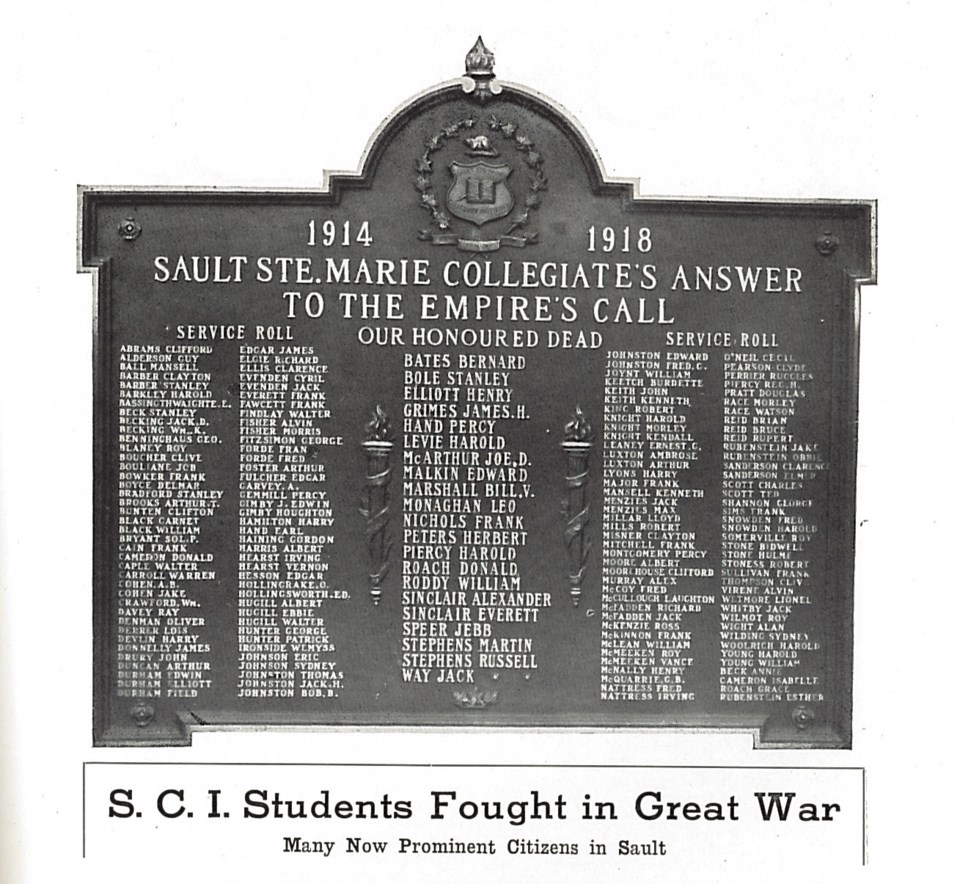From the archives of the Sault Ste. Marie Public Library:
*************************
Remember This . . . Vivian E. Clayton
Vivian Clayton was born in Listowel, Ontario in 1872. After spending her early years in Eastern Ontario, she arrived in Sault Ste. Marie in 1908 to become one of the six teachers at the high school that had been established in 1902.
When she entered her first classroom she was faced with 65 students.
Fortunately the decision was made to split her class in half before she had to try and teach the full class! Little did she realize at the time that she was beginning a 30-year teaching career at the city’s first secondary high school, Sault Collegiate Institute.
She began teaching English grammar, composition and literature but she had a special interest in composition. She had high expectations for her students and claimed that she read their compositions to find the true meaning in each one.
As a teacher she felt that she had a responsibility to teach her students about the proper use of the English language and she took on this duty very seriously.
One of her students recalled that during his first year in her class, she informed him that the word “gotten” was not considered to be proper use of the English language!
During the First World War, those who stayed here at home found many different ways to support the war effort. Miss Clayton took up the task of writing letters to the soldiers who were serving overseas. She sent them letters filled with news of events happening around the city and offered encouragement to the young men to make sure that they realized that they had a lot of people supporting them here at home.
Once the war was over, she took up the task of raising money for a memorial for the lost soldiers. The War Memorial Tablet was dedicated and placed in the school’s auditorium in 1930 and at that time Miss Clayton explained that it was “not to commemorate war but peace, and enable generations yet to come to know the names of our students who are heroes."
On June 14, 1938, the Collegiate Board reluctantly accepted Miss Vivian E. Clayton’s resignation as she retired from her teaching position. In a Sault Star article from June 1, 1938, she is described as one of Sault Collegiate’s “best loved teachers and one who had endeared herself to several generations of pupils." She was also described as having a good nature but with an iron hand which made her an ideal teacher!
The respect that the community felt for her was clearly demonstrated when the Board of Education chose to rename the Collegiate Auditorium at Sault Collegiate Institute in her honour.
Upon her retirement, she returned to her family home in Listowel, Ontario. Although she had moved away from the city she continued to send money back to the school every year until her death for the purpose of purchasing flowers on Remembrance Day. They were to be placed in the bronze vases located on either side of the Memorial Tablet in the Clayton Auditorium.
She passed away on September 27, 1969 at the age of 97.
Vivian Clayton was a respected and valued teacher at Sault Collegiate for many years.
After her death she was described as: “One of those rare dedicated teachers who instilled in pupils a deep conviction that the purpose of school was scholarship; and that anything less than perfection was an unworthy goal.”
*************************
Each week, the Sault Ste. Marie Public Library and its Archives provides SooToday readers with a glimpse of the city’s past.
Find out more of what the Public Library has to offer at www.ssmpl.ca and look for more Remember This? columns here
